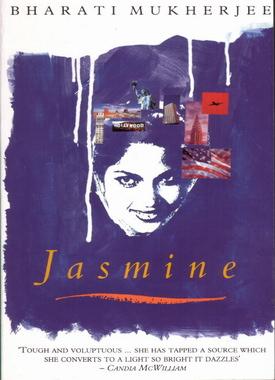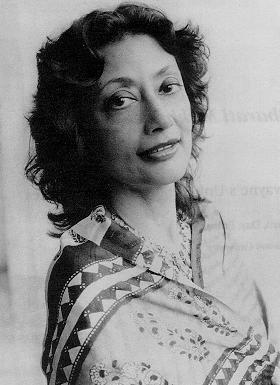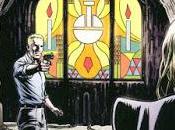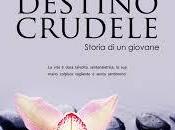 Year of first publication: 1989
Year of first publication: 1989Genre: novel
Country: India / Canada / USA
Jyoti, Jasmine Vijh, Jase and Jane Ripplemeyer are not the same person. Jyoti lives in a village in Punjab, in a house without electricity and toilets, while Jasmine lives with her husband Prakash in a small apartment in Jullundhar, where she endeavours to read a VCR manual in order to brush up her English, in the wait of emigrating to America. Jase is a live-in caregiver in a spacious and expensive apartment in the Upper West Side of New York City, and has a crush on her employer, whereas Jane Ripplemeyer is the pregnant young wife of a middle-aged Iowa banker who has left his wife for her. Unfortunately, he has become an invalid after an indebted farmer shot him twice at the back, in front of the door of his house on a Christmas eve. Moreover, Jane is an illegal immigrant and has a past of violence and confusion which she is trying to forget. Yet, this is not a book with several apparently unconnected stories, but one single story, where the protagonist constantly reinvents herself, modifying her identity as her American experience goes on and as she acquires consciousness of what it means to start a new life in a new country.
Leaving behind her widowhood (her husband suddenly died, murdered by a Sikh terrorist), Jasmine is first raped by a disfigured sailor, the captain of the fishing boat with which she illegally arrived in America, and then ends up in the ghettoised neighbourhood of Flushing, in New York, hosted by a former professor of her deceased husband. Dissatisfied of that life, too similar to the one she had in India, Jasmine finds a job as a live-in caregiver for the Hayes, who treat her as if she were a host and a friend, not a maidservant. The story unfolds in endless flashbacks, so that the reader doesn’t understand almost until the end of the book how Jasmine has ended up in a rural community in Iowa, where people struggle to understand her origins and what they involve.
 The plot, as the New York Times has written about another of her novels, has never been one of Bharati Mukherjee’s strengths: in several instances the development of the characters’ vicissitudes is unrealistic or even preposterous. For example, the protagonist kills a man who wanted to abuse her, stabbing him several times at the abdomen, then continues on her way, becoming a caregiver, a wife and a mother. She never mulls over the reasons leading the man, a deeply-scarred sailor evil as only characters of the fairytales can be, to earn his living with the smuggling of human beings. She is not upset nor has nightmares about it, only a slight hesitation, followed by pure pleasure, at the moment of entering the shower, a commodity that she first experienced in the motel where she was staying with this man. Jasmine is even able to tell her adopted son Du, grown up in a Vietnamese refugee camp where he has see all kinds of atrocities, that she has committed murder once, without thus damaging the mother-son relationship. The inconsistencies don’t end up here: fifteen-year-old Du suddenly decides to leave his adoptive family in order to join his sister, who works in a taco stand in Los Angeles, without saying goodbye to his father and leaving his mother at home alone with a rifle on her lap, because she has to defend herself from a depressed and homicidal-murderous neighbour who threatens to kill her. I could quote more examples, but the gist is that in this book the farewells, the losses, the traumas aren’t tackled and analysed deeply enough. In other words, the characters don’t brood over their choices as it happens in real life, and wounds don’t leave permanent scars.
The plot, as the New York Times has written about another of her novels, has never been one of Bharati Mukherjee’s strengths: in several instances the development of the characters’ vicissitudes is unrealistic or even preposterous. For example, the protagonist kills a man who wanted to abuse her, stabbing him several times at the abdomen, then continues on her way, becoming a caregiver, a wife and a mother. She never mulls over the reasons leading the man, a deeply-scarred sailor evil as only characters of the fairytales can be, to earn his living with the smuggling of human beings. She is not upset nor has nightmares about it, only a slight hesitation, followed by pure pleasure, at the moment of entering the shower, a commodity that she first experienced in the motel where she was staying with this man. Jasmine is even able to tell her adopted son Du, grown up in a Vietnamese refugee camp where he has see all kinds of atrocities, that she has committed murder once, without thus damaging the mother-son relationship. The inconsistencies don’t end up here: fifteen-year-old Du suddenly decides to leave his adoptive family in order to join his sister, who works in a taco stand in Los Angeles, without saying goodbye to his father and leaving his mother at home alone with a rifle on her lap, because she has to defend herself from a depressed and homicidal-murderous neighbour who threatens to kill her. I could quote more examples, but the gist is that in this book the farewells, the losses, the traumas aren’t tackled and analysed deeply enough. In other words, the characters don’t brood over their choices as it happens in real life, and wounds don’t leave permanent scars. It isn’t nevertheless a boring read: the story is gripping, also thanks to the frequent use of short sentences, which sound however stilted sometimes, as if the author had wanted to reproduce the style of a male American author, concise and pragmatic. Twenty years ago for the themes tackled the book was probably rather innovative and certainly shocking. The America described by Bharati Mukherjee is a country of endless possibilities, where an illegal immigrant who has committed a murder can become a respectable Mrs. Ripplemeyer, but it’s also a dangerous country, where a father and loving husband becomes an invalid following a gun fire or where illegal immigration flows illicitly without Americans realizing it.
Jasmine has always lived on the edge of change: that same Punjab where an astrologer predicted her a life as a widow has been swept away by scooters and television, and also the farmers in Iowa have been living an era of great changes. New, hyphenated identities are in town and new possibilities open up for young farmers of the area. By the end of the book Jasmine will need to choosee between an old life of duties, in other words between the life of a caregiver, and a new freer existence, identified by the American spirit and the expansion towards the West. The ending catches the reader rather unprepared and leaves a feeling of uneasiness, especially for ethical reasons, but also for structural coherence.
The protagonist becomes first infatuated with and then falls in love with her employer, Taylor Hayes: ‘I fell in love with his world, its ease, its careless confidence and graceful self-absorption. I wanted to become the person they thought they saw: humorous, intelligent, refined, affectionate.’ (p.171). Taylor is, in other words, like America itself, unconsciously fascinating, so much that it inspires a desire to be imitated and assimilated. At a certain point in the novel, Du’s teacher says that he is in a hurry to become all American. This is exactly what Jasmine is trying to do: she is constantly replacing saris with T-shirts and cords, learning the names of local baseball teams, buying Dairy Queen at the mall and even learning how to walk like an American. It is a complete metamorphosis: by the end of the book the protagonist is conscious of having completely cut off her Indian self, differently from her son who has kept in contact with his community of origin, but she doesn’t seem to make any steps towards her son’s direction. It seems to me that this choice reflects the culture of the ‘melting pot’ still popular in the 1980s and 90s, when immigrants were supposed to melt into a more homogenous culture.
About the author: Bharati Mukherjee was born in Calcutta in 1940 into a wealthy family and was educated in India and the USA (Iowa). She has lived for ten years in Canada with her husband and has Canadian citizenship, but now she lives in the USA. Her works often relate the difficulties of forging a new American identity and the problems faced by Asian Americans. Among her novels, at least “Desirable Daughters” (2002) deserves to be mentioned, and among her collections of short stories her most influential work has been “The Middleman and Other Stories” (1988), which won the National Book Critics Circle Award and contains the short stories that was the bud of her novel “Jasmine” (1989).






